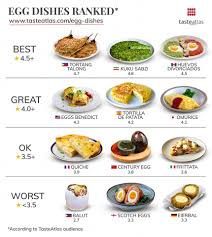Beer: A Timeless Beverage That Unites and Delights
Beer, a beverage that has stood the test of time, holds a special place in the hearts of people around the world. From ancient civilizations to modern societies, beer has been a constant companion in celebrations, social gatherings, and moments of relaxation. Its rich history and diverse flavors make it a truly remarkable drink.
Dating back thousands of years, beer has been an integral part of human culture. The earliest evidence of beer production can be traced back to ancient Mesopotamia, where it was brewed using barley and other grains. Over time, brewing techniques evolved and spread to different parts of the world, each region adding its own unique twist to this beloved libation.
One of the factors that make beer so universally cherished is its ability to bring people together. Whether it’s cheering for your favorite sports team at a crowded pub or enjoying a casual conversation with friends at a backyard barbecue, beer acts as a social lubricant, breaking down barriers and fostering camaraderie. It has an uncanny ability to create connections and forge lasting memories.
But beer is not just about the social aspect; it is also an art form. Craft breweries have emerged as artisans, pushing boundaries and experimenting with flavors to create unique brews that tantalize the taste buds. From hoppy IPAs to rich stouts and refreshing wheat beers, there is something for every palate.
The sheer variety of beer styles available today is staggering. Each style carries its own distinct characteristics, from the light and crisp lagers to the complex and robust ales. Beer enthusiasts can embark on a never-ending journey of exploration as they sample different styles from around the world.
Moreover, beer is not limited to just drinking; it also plays a role in culinary experiences. Chefs incorporate beer into their recipes, using it as an ingredient that adds depth and complexity to dishes like beer-battered fish or savory stews. The carbonation and flavors of beer can complement and enhance the flavors of food, making it a versatile companion at the dining table.
Beyond its social and culinary aspects, beer has also become a symbol of cultural identity. Different regions have their own brewing traditions and local specialties, giving beer a sense of place. Whether it’s the hop-forward beers of the Pacific Northwest or the traditional Belgian Trappist ales, these regional variations reflect the history, climate, and ingredients unique to each location.
In recent years, there has been a resurgence in craft beer culture, with small breweries popping up in communities worldwide. This movement celebrates quality over quantity, emphasizing craftsmanship and creativity. It has allowed beer lovers to support local businesses while exploring new flavors and supporting innovation in the industry.
As we raise our glasses to this timeless beverage, let us appreciate not only its taste but also the stories it carries. Beer is more than just an alcoholic drink; it is a symbol of connection, creativity, and celebration. So next time you savor that cold pint or sip on a carefully crafted brew, take a moment to appreciate the rich tapestry that is beer – a beverage that unites and delights us all.
Cheers!
7 Frequently Asked Questions About Beer: Explained
- What is the best definition of beer?
- Is 1 beer a day healthy?
- Can you get drunk on beer?
- How powerful is beer?
- Is beer actually alcohol?
- What is the most drank beer?
- Which beer is best?
What is the best definition of beer?
Beer can be defined as an alcoholic beverage made from fermented grains, typically barley, flavored with hops and brewed through a process that involves yeast fermentation. It is characterized by its carbonation, range of flavors and aromas, and varying levels of alcohol content. Beer has a long history and is enjoyed worldwide as a social drink, culinary ingredient, and symbol of cultural identity.
Is 1 beer a day healthy?
The question of whether one beer a day is healthy is a topic that has been debated among health professionals. It’s important to note that individual health circumstances and factors can greatly influence the impact of alcohol consumption on an individual’s well-being.
Moderate alcohol consumption, which generally refers to up to one drink per day for women and up to two drinks per day for men, may have some potential health benefits. Some studies suggest that moderate alcohol intake, including beer, may be associated with a lower risk of cardiovascular disease, particularly in middle-aged and older adults.
However, it’s crucial to understand that these potential benefits are not universal and come with certain caveats. Excessive alcohol consumption or binge drinking can have detrimental effects on physical and mental health. Alcohol abuse can lead to addiction, liver damage, increased risk of certain cancers, impaired judgment, and negative impacts on relationships and overall well-being.
Additionally, it’s important to consider individual factors such as personal health history, family history of alcohol-related issues, medications being taken, and lifestyle choices when determining what constitutes a healthy level of alcohol consumption.
If you have concerns about your alcohol intake or its impact on your health, it is best to consult with a healthcare professional who can provide personalized guidance based on your specific circumstances. They will be able to offer advice tailored to your needs and help you make informed decisions regarding your overall well-being.
Can you get drunk on beer?
Yes, it is possible to get drunk on beer. Beer, like other alcoholic beverages, contains ethanol, which is a psychoactive substance that affects the central nervous system. When consumed in sufficient quantities, the ethanol in beer can lead to intoxication.
The effects of alcohol vary depending on factors such as body weight, metabolism, tolerance, and the rate of consumption. Generally, consuming alcoholic beverages like beer can cause a range of effects including relaxation, lowered inhibitions, impaired judgment and coordination, altered perception, and a feeling of euphoria.
It’s important to note that excessive consumption of alcohol can have negative consequences on physical and mental health. Drinking responsibly and in moderation is essential to minimize potential risks associated with alcohol consumption. It is advisable to be aware of legal drinking ages and follow local laws and regulations regarding alcohol consumption.
If you have concerns about your own or someone else’s alcohol consumption habits or need assistance with managing alcohol-related issues, it is recommended to seek guidance from healthcare professionals or support organizations specializing in addiction and substance abuse.
How powerful is beer?
The power of beer lies in its ability to bring people together, create social connections, and evoke a sense of relaxation and enjoyment. It has the power to enhance social interactions, making gatherings more lively and enjoyable. Beer can also act as a catalyst for conversations, helping people break the ice and connect on a deeper level.
However, it is essential to recognize that beer, like any alcoholic beverage, should be consumed responsibly. While moderate beer consumption can contribute to a pleasurable experience and relaxation, excessive consumption can lead to negative consequences. It is important to be mindful of one’s alcohol intake and always prioritize personal safety and well-being.
Additionally, beer holds economic significance as it supports numerous industries such as agriculture (for growing grains and hops), brewing equipment manufacturing, transportation, hospitality services, and more. The beer industry contributes significantly to local economies worldwide by generating employment opportunities and tax revenue.
Ultimately, the power of beer lies not in its strength but in the experiences it facilitates and the connections it fosters among individuals. When enjoyed responsibly and in moderation, beer can be a delightful addition to social occasions while promoting conviviality and shared moments of happiness.
Is beer actually alcohol?
Yes, beer is considered an alcoholic beverage. It is made through the fermentation of grains, typically barley, using yeast. During the fermentation process, the yeast consumes the sugars in the grains and produces alcohol as a byproduct. The alcohol content in beer can vary widely, ranging from light beers with lower alcohol content to stronger brews with higher alcohol content. The alcohol in beer is what gives it its characteristic intoxicating effects when consumed in moderate to excessive amounts.
What is the most drank beer?
The most consumed beer globally is difficult to determine with absolute certainty, as consumption patterns can vary by region and can change over time. However, historically, some of the most widely consumed beers have been those produced by large multinational brewing companies.
Breweries such as Anheuser-Busch InBev (AB InBev) and Heineken have a strong global presence and produce several popular beer brands that are widely consumed. Examples include Budweiser, Corona, Heineken, and Stella Artois. These brands have gained popularity due to their extensive distribution networks and marketing efforts.
It’s important to note that regional preferences play a significant role in beer consumption. In certain countries or regions, locally brewed beers may be more popular than international brands. For instance, in countries like Germany, Czech Republic, and Belgium, where beer culture is deeply ingrained, local brews like Pilsner Urquell, Guinness, or various German lagers enjoy high levels of consumption.
Additionally, craft breweries have witnessed a surge in popularity in recent years. These smaller-scale breweries often focus on producing unique and flavorful beers that cater to specific tastes and preferences. Craft beer enthusiasts seek out these artisanal brews, contributing to the diversification of the beer market.
Overall, while it is challenging to pinpoint a single “most consumed” beer worldwide due to regional variations and changing trends in the industry, large multinational brands tend to dominate global markets. However, it’s worth exploring local breweries and craft beers for unique flavors and experiences that reflect specific cultures and traditions.
Which beer is best?
The question of which beer is the best is highly subjective and depends on individual preferences. With thousands of breweries worldwide producing a vast array of beer styles, it’s challenging to determine a singular “best” beer.
The beauty of beer lies in its diversity, offering something for everyone. Some may prefer light and refreshing lagers, while others enjoy hop-forward IPAs with their bold flavors. Stout enthusiasts appreciate the rich and roasty characteristics, while Belgian Trappist ales offer complex and fruity notes.
Moreover, taste preferences can vary based on factors like personal experiences, cultural backgrounds, and regional availability. What one person considers the best beer might not resonate with someone else.
Instead of seeking the “best” beer, it can be more rewarding to explore different styles and breweries to find what resonates with your own taste buds. Beer tasting is an adventure that allows you to discover new flavors, appreciate brewing techniques, and learn about different brewing traditions.
So next time you have the opportunity, try a variety of beers from different breweries and styles. Attend beer festivals or visit local taprooms to expand your palate and gain a deeper appreciation for the craftsmanship behind each brew. Remember that the best beer is ultimately the one that brings you joy and satisfaction in that particular moment.
Cheers!









